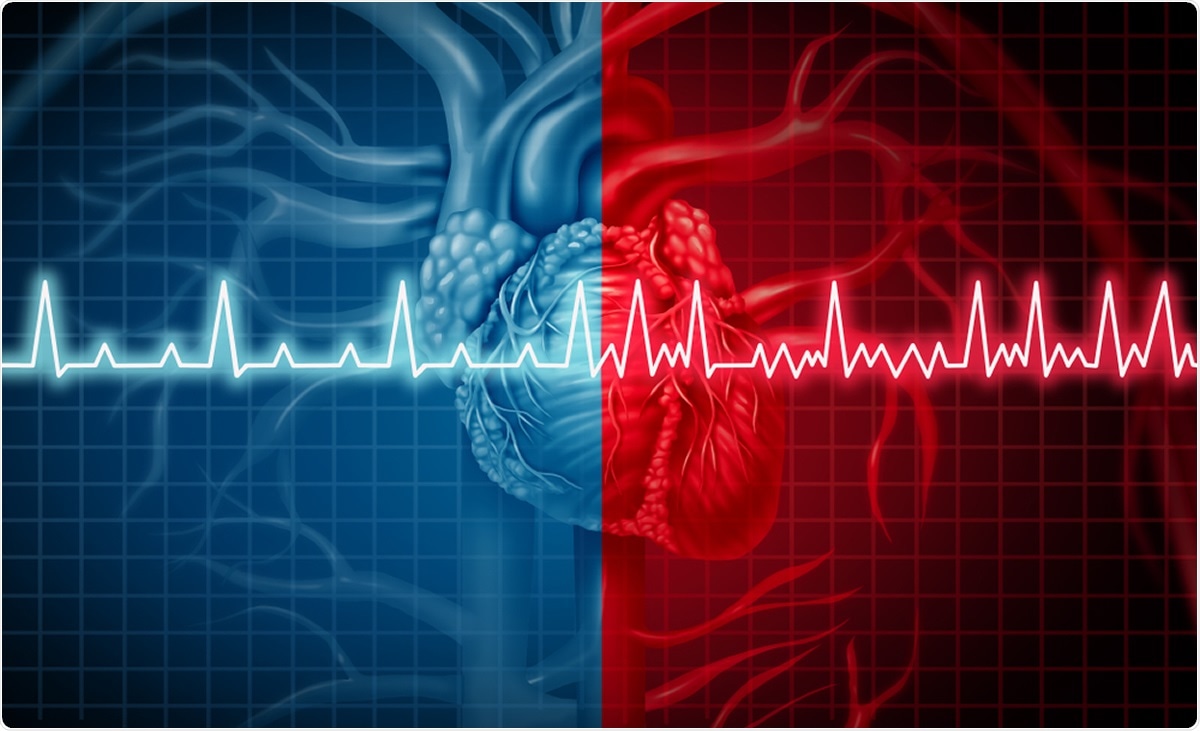The coronavirus disease (COVID-19) has ravaged across the globe, with more than 16.95 million people infected. Early in the pandemic, the disease was described as a respiratory condition as it usually attacks the lungs first. As the disease progressed, other vital organs have been affected, including the heart and the kidneys.
Now, two new studies describe the toll that COVID-19 takes on the heart, increasing the risk of long-term damage even after patients recover. These studies also show that heart damage can even occur in people who did not have severe illness that required hospitalization.

Image Credit: Lightspring / Shutterstock
Heart injury
Since the pandemic first started, evidence showed that the severe acute respiratory syndrome coronavirus 2 (SARS-CoV-2) could damage other organs, not just the lungs. The two studies, which were both published in JAMA Cardiology, provide more insight into how the illness may have a prolonged impact on heart health among those who have recovered.
In the first study, the researchers Germany, Italy, and Russia examined the presence of myocardial injury or heart damage in 100 patients who have recently recovered from COVID-19. The researchers took cardiovascular magnetic resonance (CMR) imaging from all the patients.
The team found that among those who have recently recovered, high-sensitivity troponin T, which is released by the heart after an injury such as heart attack, was detectable in 71 patients and elevated in five patients at the time of the imaging.
On average, the patients’ age was 49, and about two-thirds of the patients had recovered at home. More than two months later, the patients who are infected were more likely to have cardiac signs than those in the control group. About 78 of the patients manifested structural changes in the heart, 76 had signs of a biomarker showing heart damage (troponin), and 60 had signs of inflammation.
“Taken together, we demonstrate cardiac involvement in 78 patients (78%) and ongoing myocardial inflammation in 60 patients (60%) with recent COVID-19 illness, independent of preexisting conditions, severity and overall course of the acute illness, and the time from the original diagnosis,” the researcher wrote in the paper.
“These findings indicate the need for the ongoing investigation of the long-term cardiovascular consequences of COVID-19,” they added.
Cardiac infection
The second study by researchers at the Department of Cardiology, University Heart and Vascular Centre, Hamburg, Germany, analyzed autopsy results from 39 people who have succumbed to COVID-19. The average age of the patients was 85 years o
From there, the team has found high levels of the virus in the hearts of 24 patients. The researchers described that here are signs of viral replication in those who are severely ill with the virus. In five patients, they had signs that the virus is replicating in the heart tissue.
“In this analysis of autopsy cases, viral presence within the myocardium could be documented. While a response to this infection could be reported in cases with higher virus load vs. no virus infection, this was not associated with an influx of inflammatory cells. Future investigations should focus on evaluating the long-term consequences of this cardiac involvement,” the researchers explained in the paper.
Does not follow one path
Both studies highlight how the SARS-CoV-2 can infect humans and that the illness does not follow only one path. The complications and impact of the virus on people vary, depending on which organ it attacks. Taken together, the studies suggest that in many patients with COVID-19, the infection may cause heart damage, which can affect the body’s ability to pump blood to various organs adequately.
When the pandemic began, health experts and doctors saw the emergence of many complications tied to COVID-19. Also, those with underlying health conditions are at a higher risk of severe illness, including those with diabetes, heart failure, coronary artery disease, and hypertension, among others. The researchers of both studies believe that the heart problems experienced after the infection could belong to a pattern of lingering symptoms.
The infection has now topped 16.95 million confirmed cases worldwide, with more than 665,000 deaths. The United States reports 4.42 million cases, while Brazil has 2.55 million cases. India and Russia follow with more than 1.53 million and 827,000 cases, respectively.